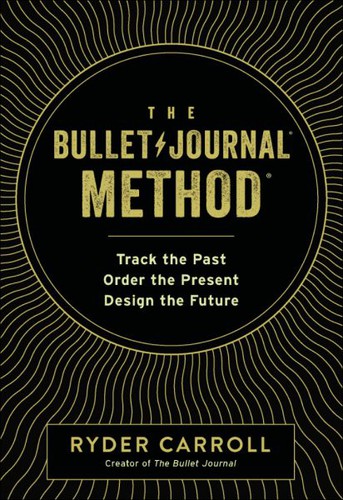cosmonaut ha recensito The Bullet Journal Method di Ryder Carroll
meglio cercare "how to bullet journal" su youtube
2 stelle
La mia abitudine più imbarazzante è che continuo a leggere libri di self-help e personal knowledge management il cui contenuto potrebbe essere riassunto in un singolo blogpost da qualche migliaio di parole. The Bullet Journal Method è uno di questi libri, infatti l'ho skimmato parecchio, ma il motivo per cui persisto è che ogni tot pagine di fuffa (e qui di fuffa ce n'è, del genere che i follower del Metodo imputano ogni tipo di successo e fortuna personale all'aver iniziato a numerare le pagine di un quaderno) di solito c'è un'idea che migliora infinitamente il mio modo di organizzare gli appunti/il tempo/la vita. Il rapporto fuffa-utilità non è ottimale, ma tant'è.
Questo volume in particolare non dà molto in più dei mille video su youtube su come tenere un bullet journal (consiglio aggiungere "simple" e "minimal" alla ricerca per arrivare a quelli veramente utili) e le parti sul vivere …
La mia abitudine più imbarazzante è che continuo a leggere libri di self-help e personal knowledge management il cui contenuto potrebbe essere riassunto in un singolo blogpost da qualche migliaio di parole. The Bullet Journal Method è uno di questi libri, infatti l'ho skimmato parecchio, ma il motivo per cui persisto è che ogni tot pagine di fuffa (e qui di fuffa ce n'è, del genere che i follower del Metodo imputano ogni tipo di successo e fortuna personale all'aver iniziato a numerare le pagine di un quaderno) di solito c'è un'idea che migliora infinitamente il mio modo di organizzare gli appunti/il tempo/la vita. Il rapporto fuffa-utilità non è ottimale, ma tant'è.
Questo volume in particolare non dà molto in più dei mille video su youtube su come tenere un bullet journal (consiglio aggiungere "simple" e "minimal" alla ricerca per arrivare a quelli veramente utili) e le parti sul vivere intenzionale e altri concetti di minimalismo pop le scrivono molto meglio Cal Newport e altra gente che ha anche un substack senza paywall.
Seconda stellina perché comunque il sistema funziona e non mi ricordo come cazzo segnavo gli impegni in agenda prima, ma mi ricordo che ero molto meno efficiente.



